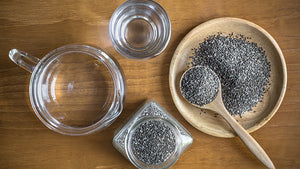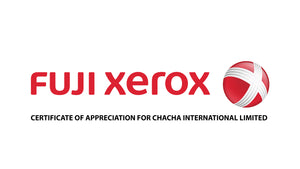The Real Benefits and Disadvantages of Organic Food

What does science say about the supposed benefits of organic food? Is the organic movement a scam or the future of nutrition? Read this article to find out.
A decade ago, the organic foods market was a piddling little niche that served a small share of consumers. Today, it's one of the hottest trends in all of food, with the majority of major producers rapidly expanding their organic divisions and the majority of Americans at least occasionally buying organic products.
Is this just another fad? Are organic foods worth the added expense?ย Are theyย reallythat much better than conventional fare?
Well, manyย people swear by the health benefits of eating organic like it's a religion, and some-the "non-believers“ -claim it's nothing more than a brilliant marketing ploy to inflateย bottom lines.
Who's right?
What is Organic Food?
Before we dive into the benefits and disadvantages of organic foods, let's take a moment to clarify what they actually are.
Organic crops are grown without the use of synthetic pesticides, genetic engineering, petroleum- and sewer-sludge-based fertilizers, or irradiation.
Organic livestock are raised without the use of antibiotics, growth hormones, and animal byproducts, and must have access to the outdoors and be given organic feed.
You can see why organic foods are an easy sell “the definitions alone imply benefits. It's fair to assume that the fewer chemicals we ingest and the more natural a food is, the better. Like the multivitamin, many people buy organic foods on this faith alone.
In terms of labeling, it works like this
Look for the seal.
For a food to be sold as organic, it must meet strict standards set by the U.S. Department of Agriculture (USDA) on how it's grown, handled, and processed. If a food meets these standards, it will feature the following seal:

Not all organic foods are the same, however.
100%ย Certified Organic
This label means that 100% of ingredients in a product, except salt and water, are organic.
Organic
This label means that 95% of the ingredients in a product, except salt and water, are organic.
Made with Organic Ingredients
This label means that 70% of the ingredients in a product, except salt and water, are organic.
What Are the Benefits of Organic Foods?
If I wanted to convince you that organic foods were a waste of money, I would parrot lines from a widely cited Stanford study that concluded that The published literature lacks strong evidence that organic foods are significantly more nutritious than conventional foods.
And many people do just that, treating the matter like an open-and-shut case on Judge Judy.
This is lazy and misleading, however, because there's a lot more to be considered in the scientific evaluation of organic foods.
First, the Stanfordย study has been thoroughly criticized by several people in theย scientific community for cherry picking studies to support their conclusions, ignoring data that doesn't, using vague terminology, and stretching their findings to answer questions it simply can't (the most basic being is organic food more nutritious or safer than conventional food.
Second, when you take the time to dive into the details and review the many papers covered in the analysis, you find several clear benefits in eating organic food.
Organic crops are more nutritious than conventional crops.
This well-designed and exhaustive study shows that organic farming produces crops with 10 to 30% more nutrients, with vitamin C, antioxidants, and phenolic acids tending to be higher in organic foods and vitamin A and protein higher in conventional foods.
Interestingly, the study, which was conducted by a large team of specialists and led by a scientist from Newcastle University, involved the review of essentially the same literature as the controversial Stanford study, but with more rigorous criteria to judge the quality of studies analyzed and significance of their findings.
Apparently the Stanford scientists didn't feel a 10 to 30% increase in nutrient density was significantly more nutritious and thus dismissed it as unlikely to improve health. This is an over-simplification, however, as relatively small increases in certain key nutrients would deliver health benefits to people eating an average Western diet.
Organic crops reduce your exposure to pesticides.
Research shows that organic crops are 85% less likely to contain pesticide residues than conventional foods, and at levels 10 to 100 times lower than conventional foods. Multiple pesticide residues are rare in organic foods and high-risk pesticides are particularly rare.
Crops aren't the only problem, either“conventional meats contain pesticides and other chemicals, as they accumulate in adipose tissue.
Furthermore, we should be concerned with theย health risk posed by pesticide exposure, not just the number or residues were exposed to.
Case in point: research shows that switching from conventional to organic foods reduces the pesticide health risk by 94%, thanks to the overall reduction of pesticide exposure and the elimination of high-risk chemicals in particular.
This is especially important for pregnant women as research shows that pre-natal exposure to organophosphates used in growing conventional foods increases the risk of autism, ADHD, and asthma, and for children, as research shows these chemicals increase the risk of cognitive deficits, including reduced IQ.
The American Academy of Pediatrics has also weighed in the matter, recognizing that an organic diet reduces a child's exposure to pesticides and may reduce the risk of diseases related to antibiotic resistance.
Organic meats contain less antibiotic-resistant bacteria.
Antibiotic resistance in humans is a serious health problem, and research shows that ingesting meat from animals treated with antibiotics is a contributing factor.
Specifically, what's happening is animals treated with antibiotics have become a fruitful source of antibiotic-resistant bacteria, which can then pass their resistance to other bacteria, and then from animal to man.
Organic farmers aren't allowed to use antibiotics to treat animals producing organic food, which is why research shows that the incidence of bacteria resistant to ampicillin is 66% lower in organic meats than conventional.
It's also worth noting that conventional meats can contain pesticide resides as well, as they accumulate in the fat.
Organic meats don't contain growth hormones that may be harmful to your health.
Research conducted by the EU Scientific Committee on Veterinary Measures relating to Public Health (quite a mouthful) back in 1999 confirmed that the use of hormones in cattle posed a potential health risk to consumers, and scientific concern over the use of these drugs has only grown since.
While the debate as to the long-term effects on humans continues, the general question is becoming how much of an impact it has, rather than if it has any impact at all and research shows that the consumption of animals treated with hormones may have wider-ranging effects than we once believed.
What are the Disadvantages of Organic Food?
So what's the catch with organic foods you might be wondering. Well, there are a few notable disadvantages.
Organic food is expensive.
If you want to go completely organic, you'd better be ready to open up your wallet.
If you have the money to spare, then you can't go wrong by trading all your conventional foods in for the organic varieties, but chances are you are like the majority of people and your food budget is tight, so well talk more about getting the most bang for your organic buck in a minute.
Organic foods don't last as long.
It's a minor point, but the lack of preservatives in organic foods means they spoil quicker, which can mean more frequent shopping trips and wasted food.
It can be hard to find a good variety of organic foods.
If you don't have a Whole Foods in your neighborhood, it can be tough to find a store with a large selection of organic foods.
That said, farmer's markets are becoming more prevalent, you can find quite a few organic foods online, or you can even grow your own if you got a DIY streak in you.
Which Foods are Worth Buying Organic?
In a perfect world, wed get all our food from local organic farmers and enjoy delicious farm-to-table eating every day. But who has the time and money to actually do this?
Fortunately, you don't have to go all-in with organic to make it worthwhile. If you choose organic over conventional for the following foods, you can dramatically reduce your exposure to pesticides:
- Apples
- Strawberries
- Grapes
- Celery
- Peaches
- Spinach
- Sweet bell peppers
- Nectarines (imported)
- Cucumbers
- Cherry tomatoes
- Snap peas (imported)
- Potatoes
- Hot peppers
- Blueberries
And on the other side of the coin is the Clean Fifteen, which are fifteen conventional foods that are lowest in pesticide residues and thus the least important when considering what to buy organic:
- Avocados
- Sweet corn
- Pineapple
- Cabbage
- Sweet peas (frozen)
- Onions
- Asparagus
- Mangoes
- Papaya
- Kiwis
- Eggplant
- Grapefruit
- Cantaloupe
- Cauliflower
- Sweet potatoes
Organic full-fat dairy is also a worthwhile investment, as the chemicals in the pesticide-laden feed that conventional livestock eat finds their way into the animal and dairy fat (conventional butter often has pesticide residues, for example, whereas organic butters don't).
By the same token, if you eat fatty meats regularly, going organic is also a good idea.
7 Ways to Get Organic Food on the Cheap
By now you'd probably like to at least integrate some organic foods into your diet, but you're also probably (and understandably) worried about the price.
While organic foods are going to cost more than conventional, there are quite a few strategies you can use to make the switch quite affordable.
Eat with the season.
Locally grown foods are almost always cheaper than imported counterparts, and if you let whatโ€s in season guideย yourย meal planning, you wonโ€t be eating organic strawberries in winter, but you save quite a bit of money.
Buy in bulk.
Local organic co-ops and health food stores have bulk sections, which can save you serious money on foods like legumes, grains, and spices.
Look for deals on ripe foods.
Most health food stores have sections for food that doesn't look prettyanymore, like dotted bananas, and food that will expire in a day or two.
These foods are often heavily discounted and you can sort through them to cherry pick the best candidates, so it's a win-win.
Buy frozen when possible.
Not only are frozen foods generally cheaper than their fresh counterparts, research shows that, nutritionally speaking, frozen foods are equal to, and in some cases better than, fresh foods.
This is also nice to know when you're buying foods in season or in bulk. Use what you need and freeze the rest!
Avoid pre-packaged foods.
As convenient as they are and as pretty as the packaging is, remember that you're paying a large premium for these organic luxuries.
Stick to whole food products that you have to cook and prepare yourself, and you'll save money.
Choose store brands when possible.
Many supermarkets and boutique stores carry their own generic lines of organic foods, including produce, pasta, grains, condiments, and more.
These generic products are quite a bit cheaper than the big brands, and while they don't look as nice, don't be fooled they are held to the same farming and processing standards.
Join an organic co-op.
Food co-ops are fantastic ways to get organic foods for far less than your local health food stores.
In fact, you may even save money by switching from conventional store-bought foods to organic co-ops by buying large quantities of what's in season and storing, drying, canning, and freezing the foods for use throughout the year.
The Coop Directory Service is a good online resource for finding a co-op in your area.
The Bottom Line
Eating organic foods may not be the secret to good health, but the benefits of organic foods are real and, in some cases, fairly significant.
Research shows that by minimizing your exposure to harmful pesticides and other chemicals, including organic foods in your diet will likely reduce your risk for disease and improve longevity, and that's well worth the added expense.
https://www.muscleforlife.com/benefits-of-organic-food/
- Perfect Earth Foods





